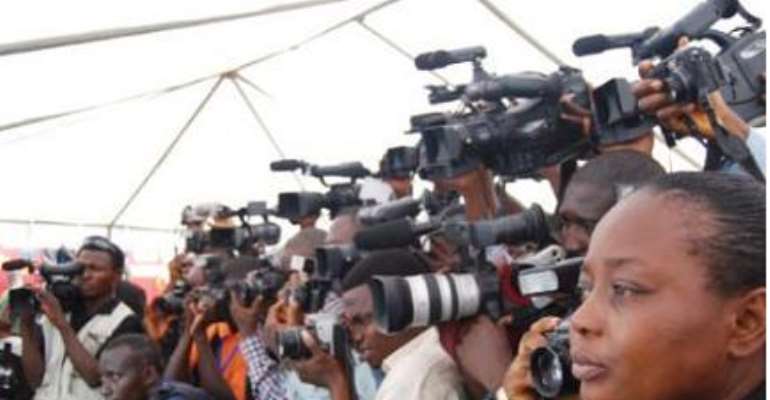Enhancing Peace-Building Through Peace Journalism

Peace Journalism uses conflict analysis and transformation to update the concept of balance, fairness and accuracy in reporting.
This approach provides a new road map, tracing the connections between journalists, their sources, the stories they cover and the consequences of their reporting.
Peace Journalism opens up a literacy of non-violence and creativity as applied to the practical job of everyday reporting. “Peace Journalism makes audible and visible subjugated aspects of reality.
Journalists, who are mindful of peace building and conflict prevention, try to uncover the causes behind a conflict and the true goals of all participants in the conflict, while making sure to humanize all victims of the conflict.
Part of the ethical guidelines for this kind of reporting is to bring out people that use peaceful measures and speak out against war and violence and document the suffering and loss on all sides.
Proffering possible solutions to prevent further escalation of conflict is the focus of peace journalism. A peace-building media can employ different strategies such as journalistic intervention, conflict-sensitive media, peace journalism, peace-promoting media, entertainment media, citizen media and media regulation, with a view to preventing incitement of violence in a post conflict environment.
Journalists should not shy away from difficult, sensitive or uncomfortable topics such as human rights abuses, gender issues, among others, even as journalists are considered to be the helpers of all human rights defenders having committed themselves to ethical and moral standards in reporting,
Assistance from public opinion is and always has to be the goal of any reporting since without reaching a broad audience that can take action, the effect of the media is limited at best.
Media and journalism can be a great assistance in conflict management and peace building. However, the power they have is also limited, as they will never be able to eliminate armed conflicts altogether.
The media can be a good tool in a healthy and functioning environment but more is needed than ethical and responsible reporting to ensure lasting peace and safety.
The role of the media is twofold: on the one hand, the media report and reflect on pressing issues and can help to question established concepts and ideas.
On the other hand, they can be used for propaganda purposes and instead of revealing truths, try to cover things up and by this curtail people’s freedom and right to information. Regardless, the potential of the media in conflict and post-conflict situations remains a net positive, and has been sadly underutilized to this point in time.
It is against the backdrop that the office of the Special Adviser to the President on Niger Delta/Coordinator of the Presidential Amnesty Programme deemed it fit to create a liaison office to cover the activities of his office in the Niger Delta, with a view to bridging whatever information gaps that may exist between his office in Abuja and the stakeholders in the region for effective implementation of the Amnesty Programme, which has entered its third phase, being the sustainable reintegration of the 30,000 ex-agitators in the region.
Piriye Kiyaramo, is the Niger Delta Liaison Officer in the office of the Special Adviser to the President on Niger Delta/Coordinator of the Presidential Amnesty Programme, Abuja
